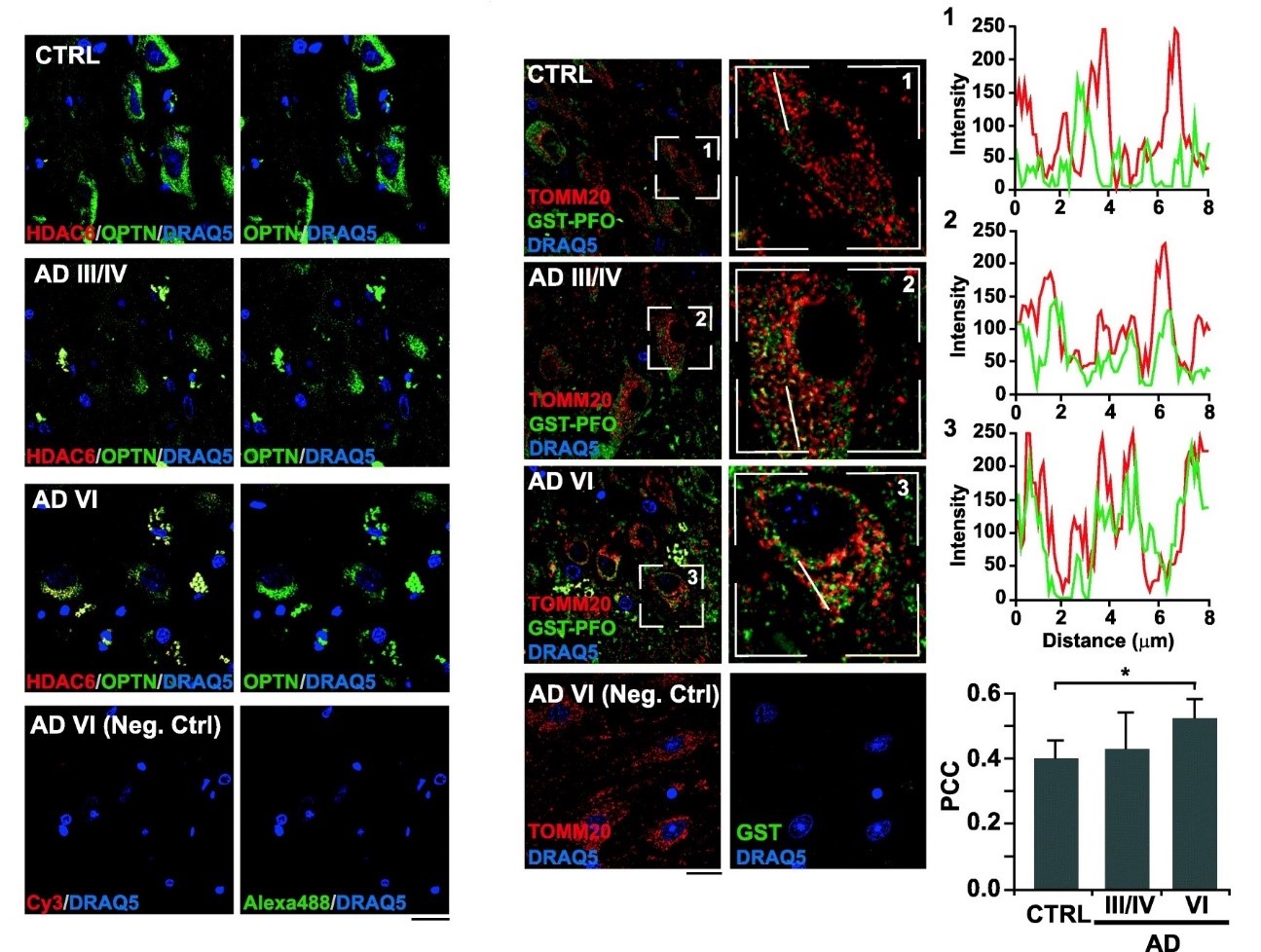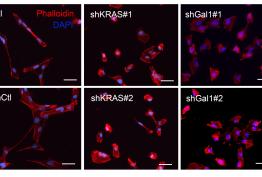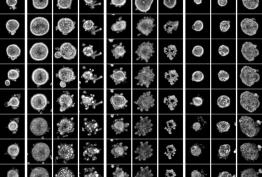The study recently published in Molecular Neurodegeneration journal with Vicente Roca as the first author and directed by Anna Colell from the group “Signaling in Cell Damage and Cancer” describes a novel mechanism connecting intracellular cholesterol with mitophagy failure in Alzheimer’s disease (AD). Previous findings pointed to an impairment of mitochondrial degradation or mitophagy in the early stages of AD as responsible for the accumulation of defective mitochondria and the worsening of the disease, however, the causes of this alteration were not fully described.
Results from the present article show that cholesterol enrichment enhances PINK1-parkin pathway induced by amyloid beta but prevents a correct lysosomal degradation of mitochondria, resulting in increased mitochondrial content. In addition, both in brains of AD model mice that overexpress SREBF2 and in post-mortem brains of individuals with AD, it is observed that mitochondrial oxidative stress due to the chronic accumulation of cholesterol promotes cytosolic aggregation of the autophagy receptor optineurin, preventing its mitochondrial recruitment and mitophagosome formation. Overall, this study demonstrates the implication of intracellular cholesterol in mitophagy failure described in AD, highlighting the relevance of using therapeutic strategies that recover cholesterol homeostasis and reduces mitochondrial oxidative stress.
Article reference:
Roca-Agujetas, V., Barbero-Camps, E., de Dios, C. et al. Cholesterol alters mitophagy by impairing optineurin recruitment and lysosomal clearance in Alzheimer’s disease. Mol Neurodegeneration 16, 15 (2021). https://doi.org/10.1186/s13024-021-00435-6







